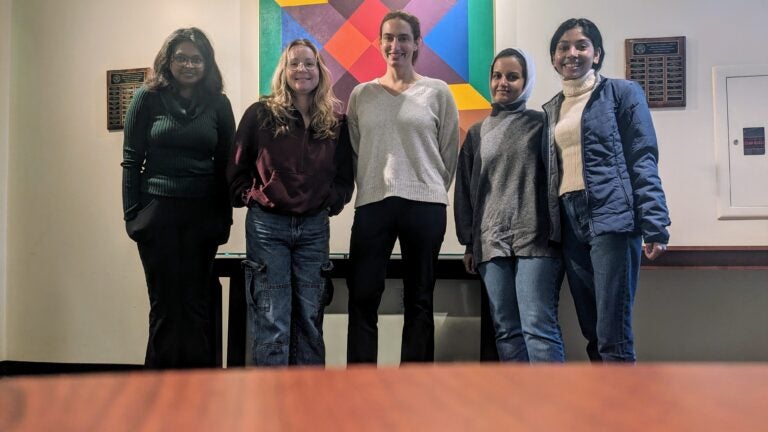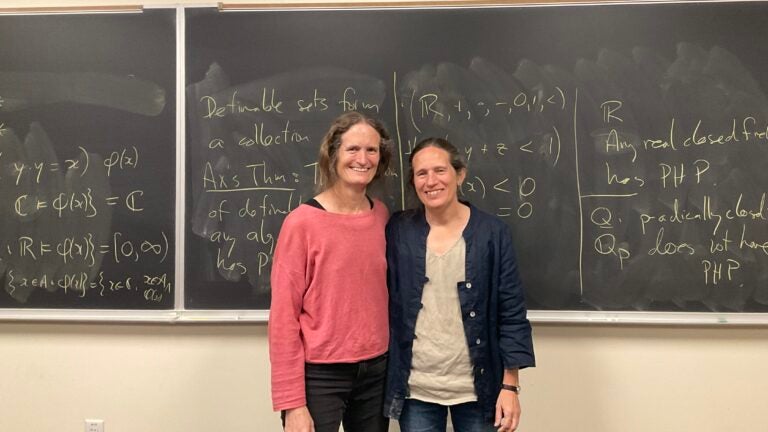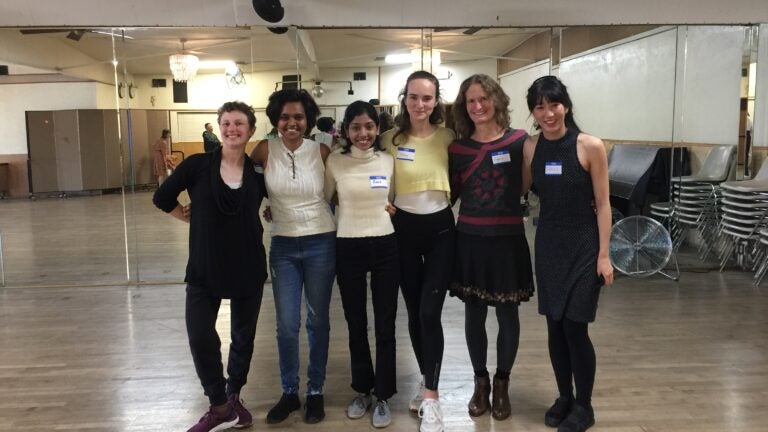Meet & Greet Event
Come meet us at our Meet & Greet Event! Kick off the semester with us at our first event — a casual meet-and-greet where you can get to know fellow students and learn more about what we do. Light snacks will be provided!
Event Details:
- Date: Friday, September 13th
- Time: 4:30-6:30 pm
- Location: KAP 410
Please RSVP here to help us plan: https://forms.gle/24thBpa88kae68Rb7.
Lynn Scow, CSU San Bernardino, April 19, 2024 1:30 PM
Lynn Scow, CSU San Bernardino, Friday, April 19, 2024 1:30-2:30 PM
Title: What is the minimum number of colors needed to solve our puzzle?
Lunch with Sami Assaf
Join us for lunch with Sami Assaf, the USC Mathematics department Director of Graduate Studies.
Monday, January 22, 2024, 12:00 PM- 1:50PM in KAP 140.

Deirdre Haskell
Speaker: Deirdre Haskell, Deputy Director, Fields InstituteProfessor, Dept of Mathematics and Statistics, Mc Master University
Location: KAP414 and KAP410
Title: An infinite pigeonhole principal
Abstract: The pigeonhole principle states that there is no injective function from a finite set to itself with one point removed. Equivalently, that any injective function from a finite set to itself is also surjective. This statement — every function on the set is injective if and only if surjective — can be taken to be the definition of a set being finite. On an infinite set, there are always functions that are injective but not surjective, so what can I possibly mean by an infinite pigeonhole principal?In this talk, I will start by reminding you of the definitions of injective and surjective. Then we’ll look at examples of functions defined on some infinite sets in particular contexts, and see that, in many cases, these functions that illustrate the failure of the pigeonhole principal feel somehow unnatural. I’ll suggest a way in which we can capture what it might mean to be “unnatural”, and suggest a formulation of an infinite pigeonhole principal, with examples where it holds and where it fails.

Deanna Needell
Professor of Mathematics at UCLA
Dunn Family Endowed Chair in Data Theory
Executive Director, Institute for Digital Research and Education (IDRE)
Location: KAP414 and KAP410
Zoom: https://usc.zoom.us/j/97705397722
Title: Big data and its big problems: From geometric surprises to the need for transparent learning
Abstract: In this talk I will start by sharing a bit about my own story, and some conjectures about why numbers for women in STEM have been historically low. Then, we will delve into the following questions, all of which center around the concept of large-scale quantities, objects, and data. First, we ask “Does Alexa really know how likely it is that two people shuffle a deck of cards in the same order? — wait, do I even know this?”. To grapple with this question we will embark on a thought experiment that takes us around the world. Next we ask “Why is it hot in dimensional space and what does that even mean?”, which will include some surprising geometric results. Lastly, we consider “Is there such thing as a ‘clear-box’ machine learning method, and why is this important?”. This will include recent work in linear algebraic approaches to machine learning and new applications to which we have applied these methods. No prior expertise is assumed, and all are welcome!
Location” Clay California 900 N Broadway Suite 1080Los Angeles, CA, 90012
Fill out the google sheet with your info. Please note that there are only 10 spots so sign up fast! Also, this event will cost $20 per person.
Together we will learn either the Waltz or Salsa dance in a one-time-class!When: Either Sunday Nov 13th at 12pm or Tuesday Nov 15th at 7:15pm.Where: Ballroom Dance Academy 817 N Highland Ave,Los Angeles, CA 90038Fill out the google sheet with your info under which class you would like to attend (or both if you have no preference)!

